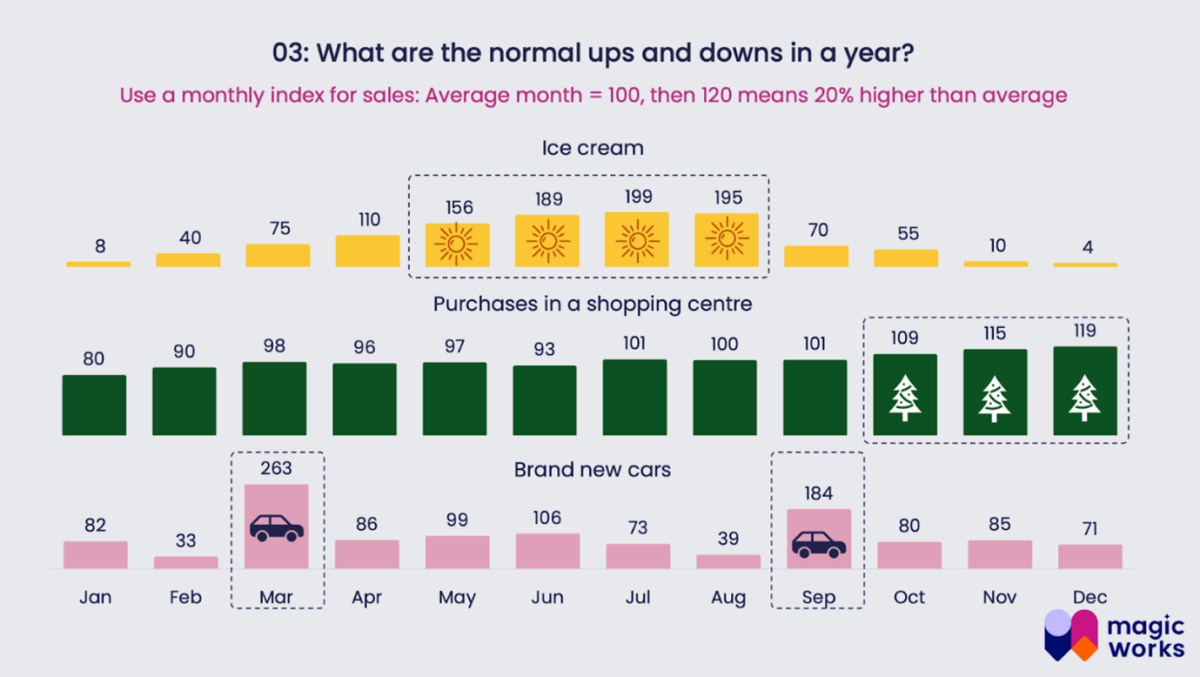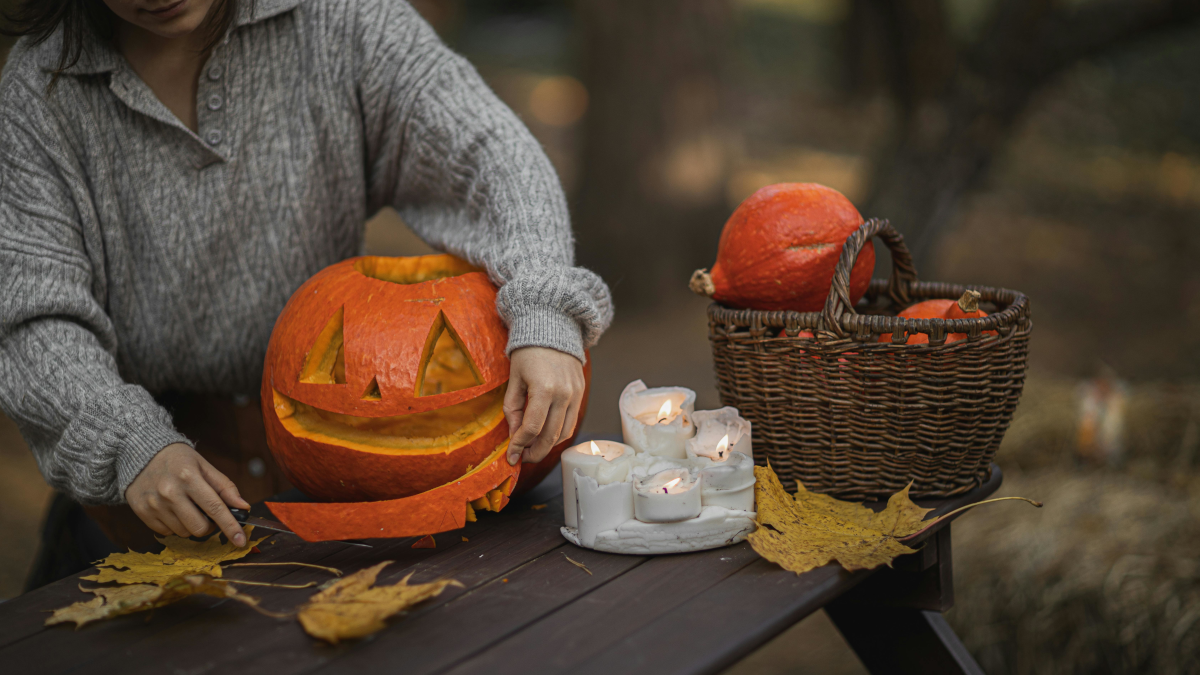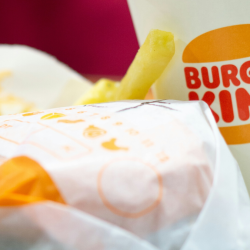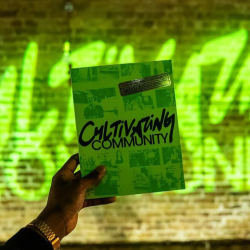It’s the spooky season!
With the US election just around the corner, ghouls are gurning with gusto. Many fictional ones will be shilling for brands of all sorts. I’m sure there will be plenty of roundups of hilarious Halloweening from marketers so I don’t need to do that — let’s consider it more broadly. Halloween is now definitely a thing in the UK. It didn’t seem to be back when I lived there, but it definitely is now. The cultural transmission seems to have boomeranged, as it often does, from Britain to the USA, who commercialised it and eventually sold it back to the UK and the world via pop culture. The Simpsons was very influential — on me and broadly — when I was growing up, leading to a sad evening in the early ’90s when I dragged my brothers out into the street to get ‘candy’ on Halloween, to be met with only the bemused faces of our neighbours. I am still often accused of being too ahead of my time to be useful. So nowadays UK confectioners need to pay close attention to Halloween as well as Easter.
Halloween is a rebranding of an earlier ‘Pagan’ (i.e. essentially pre-Abrahamic religion, usually polytheistic or animistic) festival of the ‘Britons’ (i.e. Celtic) called Samhain. It’s the end of the harvest and October was when animals were slaughtered. This meant there was plenty to feast on but it also marked the beginning of the cold, brutal winter. Since the Celtic day started and ended at sunset, celebrations started the night before and, by extension, this was the beginning of the year. Catholicism rebranded it to All Saints Day (as part of their traditionally syncretic colonising strategy), which was also known as All Hallows. Hence in medieval England the night before, when the festival ‘began’ in Pagan terms, was known as All Hallows Eve, which became Halloween. You will have to forgive me, a middle-aged man, for indulging my taste for history, but isn’t it interesting to know why things are the way they are?
We aren’t as subject to seasonality as those Samhain celebrants but, regardless of whether or not you care for daylight savings, annual seasonality still affects us, some more than others. Those hard at the coalface of modern communication will no doubt be very tired of Halloween before the celebration itself. We start planning Christmas in April if we are working on a marquee campaign for the UK.
We live in the future, constantly working for the next season or one after, like attention farmers planting branded seeds
Sometimes there are droughts or blights far beyond our control that impact our yields. We try to control what we can using what we know, giving PowerPoint offerings to the gods of effectiveness.
Whilst now many brands are ‘always on’ with at least some organic social ‘content’, historically advertising was mostly delivered via ‘campaigns’ that ran at certain times. These were always planned with an eye to seasonality because it is one of the most important variables on sales of most things but every category will have their own dynamics. If you sell chocolate, the holidays themselves drive the majority of consumption — Halloween is the biggest, followed by Easter.
In fact, according to the National Confectioners Association (USA), 64% of all chocolate and candy sales can be attributed to the four holiday seasons (Valentine’s Day and Christmas being the other two). Since I am currently enjoying the Data Works course from the lovely Magic Numbers, I can illustrate different category dynamics:

Weather impacts sales while changing seasonally, more so nowadays, in various not entirely obvious ways
One of the challenges for research and insight work is that humans leap to conclusions all the time and entirely opposite ones can both make sense. For example, it ‘makes sense’ that people go to stores less when it rains, so retail sales should go down but it shouldn’t necessarily impact online sales. It also ‘makes sense’ that people might retreat from the rain into one of the remaining shopping malls and thus potentially buy more.
This is the problem in general with ‘common sense’ or any kind of just-so story of causal explanation. That’s why we do research. Such research, from the Federal Reserve Bank in San Francisco, can highlight, for example, that online sales in fact go up significantly when the weather is good, and go down slightly when it’s bad.

Assuming you have worked out your seasonality and put in place contingency plans and conditional media buys based on temperature limits or weather fluctuations, you still have to decide what to do. Since strategy is inherently competitive, decisions can often come down to a simple choice — do you do what everyone else in the category does or not? For distinction or differentiation (or whatever) doing things differently is key but if every brand in your category spends money in a particular month, there is probably a good reason they are doing so.
Strategy must take into account the potential future activity of customers (prospective and existing), competitors and other marketers, because all advertising in the market impacts media costs and the cultural salience or distinctiveness of creative and so on. Halloween advertising competes with other Halloween advertising. As with any holiday, if sales spike in summer or at Christmas, should you try to accelerate then to grow share in the busiest period? Or seek share of voice opportunities elsewhere in the calendar to get cheaper eSOV — but potentially lose share to more aggressive or bigger spending competitors in the competitive period where more sales are up for grabs? There are always trade-offs and budgets are always limited.
Happy Halloween!
Enjoy the celebrations, hopefully you have Christmas locked and loaded and are planning for Spring 2025. Times of plenty cycle into leaner times and the world is unpredictable but, ceteris paribus, more people will be buying more ‘candy’ now and then for Christmas, and then less, and then more leading up to Easter. Easter itself is a rebranding of another ‘Pagan’ festival for the goddess of spring and fertility (Genius Steals, after all). The word derived from an older word for dawn, related to the word east, where the sun rises, marking the halfway point of the day, and the year. Eggs are ancient symbols of rebirth, and thus by extension, spring. This blended with Christianity when it absorbed local holidays and traditions, making eggs a symbol of the resurrection associated with spring.
So seasonality and culture mean many chocolate companies make egg-shaped products for one quarter of the year and advertise heavily in that period. Historically, all consumption was seasonal, and we continue those traditions with our modern marketing. Merry Christmas and Happy New Year! (Too soon?)
Featured image: Alexandra / Unsplash


































